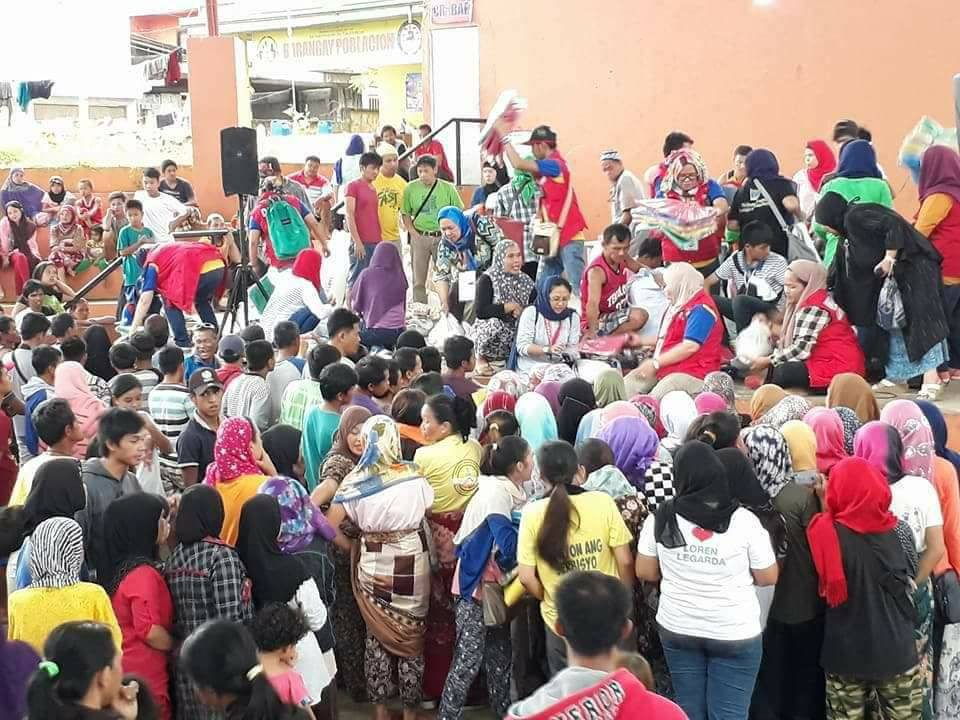SUMMARY
This is AI generated summarization, which may have errors. For context, always refer to the full article.

MANILA, Philippines – A women’s group called the attention of the government to the needs of pregnant women who fled the war in Marawi City.
The Center for Women’s Resources (CWR) raised the concern on Wednesday, July 5, during a forum on the effects of the Marawi siege and martial law in Mindanao.
CWR coordinator Cielito Perez, who was among those who conducted an inter-faith humanitarian mission in the war-torn area, said that there are a lot of pregnant Marawi evacuees.
“One effect that makes pregnancy hard for them is trauma. But their very situation there – there are no designated places for pregnant women; they sleep on mats and it’s difficult for them to get up,” Perez said in Filipino during a brief interview with Rappler.
Worse, Perez said, many of the women are missing their pre-natal check ups as there are no specialists nearby. Evacuees also don’t get enough nutrition since most of what they eat are relief goods – noodles and canned goods.
“Siyempre, napakahalaga ng nutrisyon para sa nagbubuntis [pero] hindi ma-provide sa kanila. Bagamat may relief, palaging noodles, canned goods, ‘di makakasapat,” she said.
(Of course nutrition is very important for pregnant women but it is not provided to them. Even though there are relief [goods], these are always noodles and canned goods.)
“There are those who provide cooked food but it is not every day and eventually supplies in evacuation centers would get depleted,” she added.
The humanitarian aid workers said another cause for concern for the women is their due date, since access to Iligan City where major hospitals are located is limited. People entering the premises would have to present their IDs following tighter security after the imposition of martial law.
According to data from the Department of Health, 6 births have been recorded in evacuation centers. Monitoring groups said the number may be higher since there are many pregnant women staying with their relatives. (READ: ‘Safe spaces’ set up for women, children who fled Marawi)
Government action
CWR urges the government to be sensitive to the needs of evacuees who are either pregnant or of child-bearing age.
The group noted that some 80,000 of the nearly the 400,000 displaced people are women of child-bearing age. (Marawi: Images from a ghost town)
The Department of Social Welfare and Development, which is in charge of the camp management, said it has coordinated with the DOH on the concerns of the pregnant women.
“Iikutin nila lahat ng evacuation center. Magkakaroon sila ng schedule kung sino dapat ang dadalhin nila sa hospital na may due date ng delivery,” DSWD Undersecretary Hope Hervilla said in an interview with Rappler.
(They will do their rounds in evacuation centers. They will have a schedule on those who are due for delivery and should be brought to the hospitals.) n
As for nutritious food for pregnant women, Hervilla said the DSWD is in the process of addressing this concern since the first few batches of procured food packs are the usual ones distributed during times of disaster.
Fighting continues in Marawi City as the military neutralizes the IS-linked Maute Group. Martial rule also remains in Mindanao until July 22, unless extended, after the Supreme Court affirmed President Rodrigo Duterte’s martial law declaration. – Rappler.com
Add a comment
How does this make you feel?
There are no comments yet. Add your comment to start the conversation.